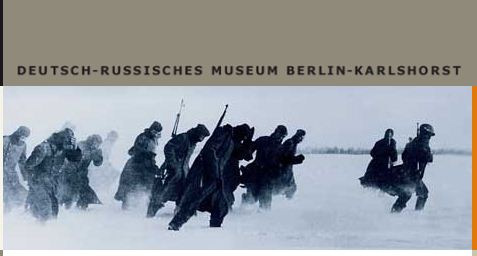How to study the history of the Slavic World today?
September of 2017
St. Petersburg State University
Deadline : 30 October 2016
The origin of Slavic studies as a special field of scholarship on the border
of
the XVIII–XIX century was closely connected with genesis and development of
national сonsciousness of Slavic nations in the modern period. Intellectuals
of Central and Eastern Europe offered a new understanding of the fact of
Slavic
linguistic community and raised to the principally other level Slavic
identity.
To a certain extent It was connected with development of nationalism among
Slavic peoples as a special multidimensional ideological trend and at the same
time a complex social phenomenon
The idea of Slavic studies as a special field of knowledge was developped in
following periods. Slaviс studies were much required field of scholarship in
the second half of the XX century due to the Cold War and withstanding of
Great
Powers. By will of the Fate the majority of Slavic people were included in one
of the antagonistic military political blocks.
The end of the Cold War and serius geopolitical changes caused by it seriously
affected Slavic countries. The Slavic identity started to play rather modest
part in new integration processes in the modern Europe. One Slavic countries
became members of the EU and NATO. Other feel the threat to their identity and
cultural and spiritual heritage, so they find alternative in attraction to
Russia.
All these facts and processes put a question before a researcher about
consequences, which the present position of the Slavic world would have for
Slavic studies as a scholar discipline. Slavists meet following questions.
1. What is the Slavic identity now?
2. What is its role int context of modern social political processs?
3. How should we study the history of the Slavic countries?
4. What is its place in infrastructure of scholarship and University teaching?
5. Do Slavic studies have perspectives as an independant discipline and a
field
of research?
In order to find answers fo these questions, St. Petersburg State University
St. Petersburg State University proposes to hold an International Congress of
Historian-Slavist, teachers of the history of Slavic countries and publishers
of historical journals on the Slavic Studies.
Following problems are proposed to be regarded.
1. Slavic world and its history: problems of interpretation and studies.
2. Idea of Slavic unity in the past and the present and scholar Slavic
Studies.
3. Slavic identity in historical retrospective and perspective from the Middle
Ages to Contemporary History.
4. Slavistic education and its application in the contemporary world.
5. The Slavic world and globalization.
6. Russia and the Slavic world from the Middle Ages to our time.
• The origin and development of the Slavic studies as a scholar discipline in
the XVIII-ХХ centuries.Scholar institutions and personalities
• Priority directions of scholar research and education in Russian and
foreign Slavic studies in the XIX century.
• Russian and Slavic cultural, scholar and scientific contacts in the
XIX-ХХ century.
• Achievements of the Slavic Studies in the XVIII-XIX century. Slavist
scholars and their heritage.
• Titans of the Slavic Studies in the XIX – first half of the XX century.
Russia and Slavdom abroad.
• The Slavic Congress in 1867: the event and its consequences.
• The Slavic Studies and the crisis of historical methodology. The solution
of the problem.
• The Slavic Studies in the Soviet Russia. Fates of scholars and the
countries.
• The Slavic Studies between two World Wars. The statement of national
souvereignity and fates of scholarship.
Recovery of Slavic Studies in the Soviet universities and Academic Humanities
(1939 – 1950-е гг.).
• The Slavic Studies. The problem of center and periphery. Moscow and the
USSR. Moscow and Russia. Moscow and the countries of People’s Democracy.
Mutual influences and collaboration of the Center and its «Environment»
• The Soviet Academic Slavic Studies. Problems, directions of research,
achievements.
• Transformations of сontemporary history. The way from Soviet to
Post-Soviet Slavic studies. Traditions and innovations.
• The place of Slavic studies in the High School on the border of the the XX
– XXI вв.
• Learned journals on the Slavic Studies — past, present, future.
• Edition of book series on the Slavic Studies – past, present, future.
The section for young slavist scholars will be also organized. It will
include
students and post-graduate students and magisters up to 30 years.
Working languages of the congress are Russian, English, German and all the
Slavic languages.
In order to take part in the Congress it is necessary to send the request to
the address slav_congress@spbu.ru before 30 October 2016. The form should
contain the full name of a participant, his place of work, his scholar
position, his scholar degree, the topic of his paper, his section and
annotation of the paper (up to 300 words).
The participation in the Congress supposes arrangement fee. The form and
conditions of payment will be placed on site soon.
A wide cultural program with visits of historical places and museums of St.
Petersburg is planned.
Sincerely, Alexander Filyushkin
St.-Petersburg state university
a.filushkin@spbu.ru












